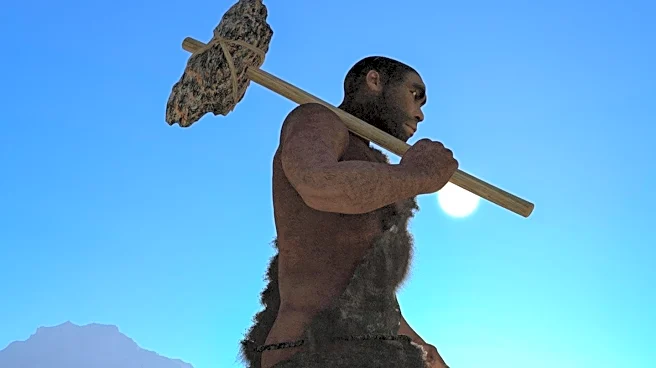What is the story about?
What's Happening?
Researchers at the University of Maine propose that cultural evolution is overtaking genetic evolution as the primary driver of human adaptation. Their study suggests that cultural practices and technologies spread and solve problems faster than genetic changes, shifting evolutionary pressures from individual biology to group-level cultural systems. This transition may lead to humans becoming more group-oriented, with societal structures and shared knowledge shaping future evolution more than genetic traits.
Why It's Important?
The shift towards cultural evolution has profound implications for understanding human development and societal change. It suggests that cultural systems, such as education and healthcare, play a crucial role in shaping human adaptation and survival. This perspective may influence policy decisions and research priorities, emphasizing the importance of cultural infrastructure in promoting well-being and resilience.
Beyond the Headlines
The emphasis on cultural evolution reflects broader discussions about the role of culture in shaping human identity and social structures. This perspective may influence debates on globalization, cultural diversity, and social cohesion, as societies navigate the complexities of cultural adaptation. The focus on group-oriented evolution also highlights the importance of collaboration and shared knowledge in addressing global challenges.















